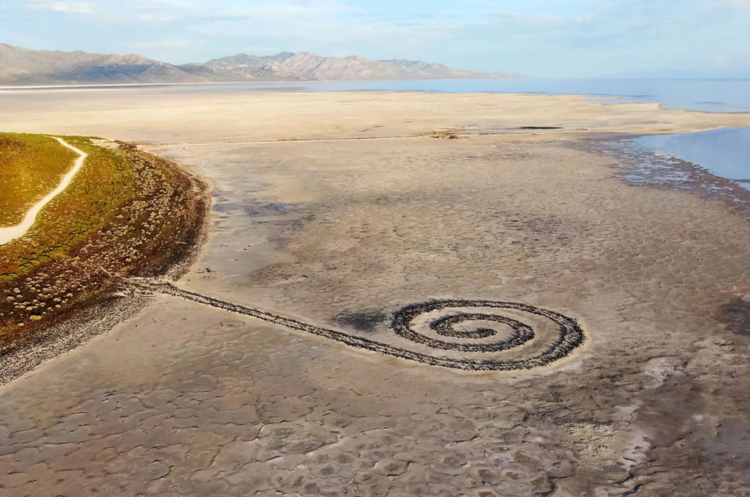Conference "The Imitation Game: Sound, Space And Computability" at Porto Municipal Theatre – Rivoli

“The imitation game: Sound, Space and Computability” by Jonas Runa will take place on the 7th february at 18.30 at Porto Municipal Theatre – Rivoli. The event is part of the VI Conference Cycle Lusófona University / Rivoli 'Espaços, lugares e territorialidades' [Spaces, places and territorialities], organized by CICANT researchers Isabel Babo, Manuel Bogalheiro and Universidade Lusófona's Dean José Bragança de Miranda.
Synopsis
The polysemy of the concept of sound immediately invites reflection on border issues between science, art and contemporary philosophy. Recovering John Locke's terminology, we would say that sound fits both primary and secondary qualities: as a scientific entity, independent of ourselves, sound is inaudible, because the equations of acoustic physics do not presuppose an observer or type of listener; as a perception, sound remains inexplicable, as no algorithmic or computational process has yet been able to simulate the kaleidoscopic variety of mental and subjective experiences of the sound phenomenon developed by the evolution of life over millions of years. Sound permeates space, from the murmur of atoms to the far-off song of galaxy clusters. Hard as it may be to imagine, the fact is that there was an Earth before life where there was electromagnetic radiation but no sense of color, a world inhabited by acoustic pressure waves but without any sound sensitivity. Difficult to imagine, as this perspective, which science invites us to, forces us to confront a radical exteriority, that which exists “in itself”. But will we be able to conceive of sound, space or the world from a perspective that lies beyond ourselves, without the sensory faculties that evolution has provided us? On the other hand, it must be said to the most orthodox scientist that the Universe owes us nothing, least of all the existence of science. It is not bound by logical consistency or intelligibility, the moral law, mathematization, beauty or any concept, method or human regime of truth. That the world is comprehensible is in fact perfectly incomprehensible (Einstein). Any significant scientific advance seems to require proportionately wild speculation. We have known this clearly at least since Feyerabend: there is no method, there are no results that prove the method. There is no purely rational leap to infer theories from facts. There are no 'normal periods' of science, so that they can be punctuated by revolutions and catalyze paradigm shifts. There cannot be a rigid criterion of 'falsifiability' without the hollowing out of what we know as science. There will perhaps be a certain tendency when we consider specific series of scientific theories, but even from this it will be difficult to extract, in the last analysis, a theoretical or practical definition of 'scientific methodology'. The impossible is the only plausible direction. Paradoxical challenge: the imitation game.
Biography
Jonas Runa
His works have been presented at the Museo Guggenheim Bilbao, 55th and 56th Venice Biennale, 798 Art District (Beijing), ARoS Aarhus Kunstmuseum, Galerie Scheffel (Frankfurt), Logos Foundation (Ghent), Museo de Arte Contemporáneo (Santiago de Chile), Théâtre de la Ville (Paris), Arnold Schoenberg Hall (The Hague), Yorkshire Sculpture Park (United Kingdom), Calouste Gulbenkian Foundation (Lisbon) and Casa da Música (Porto), among other venues.
He holds a PhD in Science and Technology of the Arts from the Catholic University of Portugal and a postdoctoral degree from the Faculty of Social and Human Sciences, Universidade Nova de Lisboa. He was Co-Investigator in Charge of the FCT project “Technologically Expanded Performance”. In 2007, he created the duo ZUL ZELUB, with Jorge Lima Barreto, for piano and electronic music. In 2021 he was elected a member of the Academy of Sciences of Lisbon - Seminário Jovens Cientistas, a distinction awarded to 20 researchers from all areas of knowledge.
He develops his activity in the field of Sound Studies and Artistic Research-where artistic production and academic research are strongly intertwined. His works cross a considerable variety of artistic and academic domains, the main ones being New Media Art, Performance Art and Multimedia, Sound Sculptures and Light Art, Improvisation and Musical Composition, as well as Contemporary Dance.
He is currently Director of the Degree in Sound Science and Technologies and the Master in Sound Production and Technologies at Universidade Lusófona.
- published 01 February 2023
- modified 03 October 2023
